Four Champion retailers discuss the different types of crime they have experienced and the resulting security measures they have taken
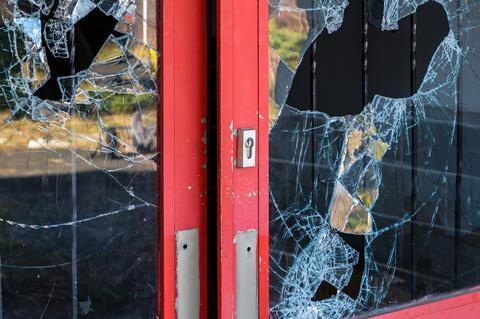
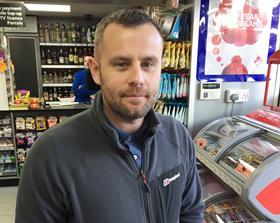
Gareth Hooton, Hooton’s News, Warrington
Having suffered a ram raid last year, Gareth has invested in more security measures and is hoping to upgrade some of his CCTV cameras
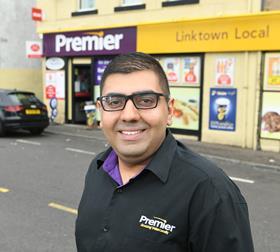
Faraz Iqbal, Premier Linktown Local, Kirkcaldy
Faraz believes that engaging with the local community can play a huge role in helping to earn respect from locals and discourage crime.
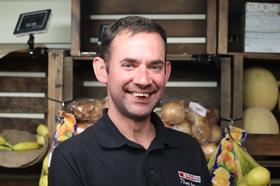
Joe Williams, The Village Shop, Hook Norton, Oxfordshire
The Village Shop had two break-ins last year and Joe has been working with his team on safety procedures.

Arjan Mehr, Londis Bracknell, Berkshire
Arjan is calling for the government to address the problem of persistent shoplifters as he thinks the police are not dealing with the issue.
How big an issue is crime for the convenience channel as a whole?
Gareth: Day to day it has a massive impact. You don’t know what’s going to happen next with scams, theft, abuse even.
Faraz: It is a big issue and I think the problem has grown.
Joe: I think it’s increasing. It will be interesting with coronavirus; shoplifting could be a problem. If stores are closing down, if people are being made redundant, is that going to push regular shoplifters into c-stores?
Arjan: I think it’s always been an issue, but in the past couple of years when response from police wasn’t adequate people started to take their chances and now it’s becoming a major issue.
How big an issue is crime for your store, and what are the most common offences that you encounter?
Gareth: Generally, we see theft involving a bar of chocolate or a can of lager. It’s low level, but it still hurts your margin when you have rising wages and bills. We’re not in a terribly bad area, but you’re wondering when it’s your turn. Gangs have been going into the bigger Co-ops in our area.
Faraz: It’s certainly a daily problem. Theft is the biggest issue. Surprisingly, confectionery is the main product taken. If you’re part of the community there’s less abuse, but I’ve seen abuse and I know it’s out there.
Joe: It is an issue – you constantly have it on your agenda. Even when I walk behind the till and I see the cash drawer open I make sure it goes into the security box. I drill into staff: make sure you’re locking up. Shoplifting is still the most common crime at our store.
Arjan: In my case, it’s not a major issue. We tend to manage to keep on top of things. There’s shoplifting, but mostly it’s people who have alcohol issues or are allegedly homeless.
Do you report every incident to the authorities?
Gareth: No, we deal with it as necessary. It’s just not worth the hassle to report it – the police aren’t interested. They give you a crime reference number and that’s it. It’s not worth the paper it’s written on.
Faraz: Not at all. I’ve only reported it once or twice. When I have told police they’ve responded, but it’s a time issue. If someone’s stolen a couple of pounds-worth of stuff, how much time are you going to spend getting that back?
Joe: Yes. I’m part of a crime partnership in Banbury and we have access to an app which has an online reporting tool straight to Thames Valley Police. It’s really effective. The police can see if there’s a pattern in the area and it makes better use of their resources.
Arjan: We keep telling them we understand you are resource-challenged. We’re not asking you to write a report for someone nicking a Mars Bar, or an occasional bottle of wine. We don’t report those. What we want help with is the persistent offenders.
Do you have a particular way of dealing with shoplifters?
Gareth: I just ban shoplifters from the store. I still get the money off the school kids, because the banned pupils just give the money to their friends to buy things.
Faraz: It’s sometimes better to deal with these things personally. I’ve confronted customers and banned them from the store and got the product back and stopped it happening again.
Joe: If we’ve held a shoplifter we call 999 and the police will come. Some people are old hands at it and know you can’t detain them and will kick off to get away. Then the police just advise letting them go and they’ll follow it up afterwards. It’s quite effective and means we’re not being placed in danger. We’ve had several arrests because of it.
Arjan: We try to tell them politely that they are barred. In the majority of cases they go away. After a few days and weeks they come back and try their luck again.
How do you train staff to deal with criminal activity or threatening behaviour?
Gareth: If they feel under stress staff have the panic button. They’re not there to take abuse.
Faraz: There’s no tolerance of threatening behaviour. A serious threat is dealt with by the police. If it’s anyone being abusive we deal with it as a community and explain to them that it isn’t acceptable.
Joe: If they have an aggressive customer, staff have radios and can call myself or a manager. It’s an instant response, which diffuses some situations. Explaining why we have a procedure in place gives staff a better understanding of what’s going to occur, rather than just saying ‘Keep an eye out’.
Arjan: Staff have been told not to escalate the situation. We tell them do not personalise your discussion, be firm but fair. You are only doing your job so don’t get into a heated debate, because it escalates.
Do you think the local police and other agencies are supportive when it comes to business crime?
Gareth: I was disappointed with the police response to the ram raid. It was 15 minutes for a level one response. The resources aren’t there any more. People know they can get away with it and that’s why they do it. The police only want to crack big cases and big jobs.
Faraz: I think they’ve got their hands full. When there is a real need they can be very supportive. If somebody stole a Mars Bar I’d completely understand why they wouldn’t come out – there are a lot of bigger problems out there.
Joe: They haven’t caught anyone over break-ins, but they have kept us informed, which is good. That gives us reassurance they are taking it seriously.
Arjan: On the one hand I’m trying to understand their predicament of resource challenges, but at the same time surely they can’t just let persistent offenders get away with this. It isn’t just one bottle of wine – 10-15 times a month adds up to a sizeable chunk of money. The government really needs to look at this issue. We’re not talking about minor crimes, we’re talking about serial offenders coming in day in and day out, and barring them is a complete waste of time. You could halve the problem by tackling these people. They go from shop to shop, they are known to police. They’ve been caught several times, charged, taken to court. The authorities really need to review this. The government has to allocate a certain amount of money to this. Local police and crime commissioners need to act.
What security measures do you have in place?
Gareth: We have CCTV and concrete bollards with steel inside in front of exterior doors.
Faraz: I’ve got CCTV, I’ve got a smoke screen security system, panic buttons and remote monitoring by a security company where they can speak through the monitor.
Joe: Since the break-in, we’ve improved and adapted security measures where we need to – such as changing lighting outside and having in-store lighting on while cashing up. Staff also carry walkie- talkies so they can communicate. It’s reassurance for them. If they were to get an aggressive customer, they have assistance straight away.
Arjan: We have CCTV. We also have a physical presence of staff. If we think someone will shoplift we have staff in the area as a deterrent. We have between four and six members of staff at any given time. I don’t want to catch people, I’d rather deter them.
How much do you spend on security each year?
Gareth: It’s not an annual thing we budget for. We’ve had new bollards installed, they were a few hundred quid each, so £600-£800. This year I might have to change a few cameras as some of them are looking worn.
Faraz: I put aside a set amount of money on security each year and everything is reviewed annually to keep all equipment up to date.
Joe: Last year we spent £2,000 on improvements, and usually we spend £1,000. Our camera system is set up at the moment, but we may upgrade it in a few years.
Arjan: We make sure the CCTV is up to date, but we don’t have an annual budget for security.
What advice would you offer other retailers who are keen to crack down on crime?
Gareth: Get a good CCTV system, including an outdoor one with good quality cameras. You can get one that alerts the retailer if someone’s messing outside the store.
Faraz: It’s sometimes about working with the community to solve the problem rather than creating barriers. It’s about making people understand it’s not acceptable to steal and that you are there to help people. It’s getting that respect.
Joe: You don’t need to see investing in security as expensive. Look at worst offending areas first and listen to your staff – they play a key role in remaining vigilant and may well come up with suggestions you haven’t thought of, even down to product placements. The walkie-talkies cost £200 and have been a massive gain for staff as they feel a lot more secure. I went on to Amazon and paid £100 for four. Operationally it aids them and the staff love having them. When I first put them in I thought staff would be scared to talk into them, but they do use them, which is beneficial for the business as well. It has a good customer service element.
Arjan: I think the best approach is the deterrence value of having a sufficient number of staff. Very often people tend to divert members of staff because they operate in gangs. These are things you need to be mindful of. It’s a false economy to have fewer staff. You need to have a minimum number of staff regardless of size of store.
What is the worst incident you have encountered recently?
Gareth: We got ram-raided in the middle of the night a year ago, which set us back weeks. My cigarette gantry was locked up so they didn’t get any tobacco, but they didn’t go away empty-handed – they managed to steal £200-worth of spirits. They caused a lot of damage by hitting sledge- hammers into the doors.
Faraz: I’ve been threatened outside the shop while I was closing up. Someone had stolen something from the shop during the day and he came back later on, unhappy that he had been embarrassed in front of people. We had an argument and people from round about stopped by and he left. The following day he came in and apologised.
Joe: Last year we had two break-ins in the space of two-and-a-half weeks. That was the first we’d had in 15 years. During one of the incidents, three men with balaclavas and baseball bats smashed their way into the store.
Arjan: Threatening behaviour to staff can be quite intimidating. The worst case has been that they go off in a huff.
How do these crimes affect you, your staff and business, both in the short and long term?
Gareth: It’s all the mess and getting the shop straight again. We were closed for a day and then re-opened with temporary doors; the night-time was nerve-wracking without proper doors. Also, our annual insurance premium tripled. On the back of that were losses – you put in a claim and they [the insurer] knock you down. The ram-raiders ripped the whole scratchcard unit out. When I did my sums I estimated there were £1,500-worth of scratchcards and they only covered us for £500 as they count scratchcards as cash, not stock.
Faraz: There are days when you go home and wonder if it’s worth it. Financially, I have a full stock take so I know what’s gone missing. Sometimes it tips the boat from keeping a product to not. Other times, you move the location of a product to stop it happening. It could be that at one point it’s not financially viable to run a particular promotion.
Joe: The biggest challenge for us with the break-ins was the recovery, along with staff morale. The first time staff took it on the chin. The second time, we found staff were on edge – their personal safety had been compromised. Listening to staff helped them to get through it. It’s about showing we do take it seriously.
Arjan: Very often, staff morale can become a challenge. Motivation goes out the window when people come in and start giving abuse. It’s hard for staff to challenge these people.




















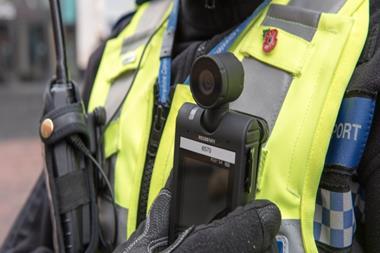



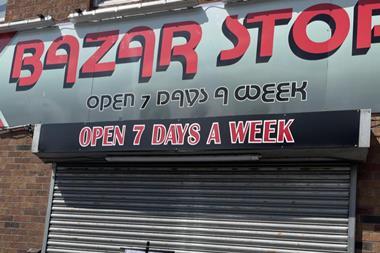


![C-Store_Champions_logo-CHOSEN[1] 2023](https://d2dyh47stel7w4.cloudfront.net/Pictures/380x253/6/5/7/301657_cstore_champions_logochosen12023_817064.jpg)




No comments yet